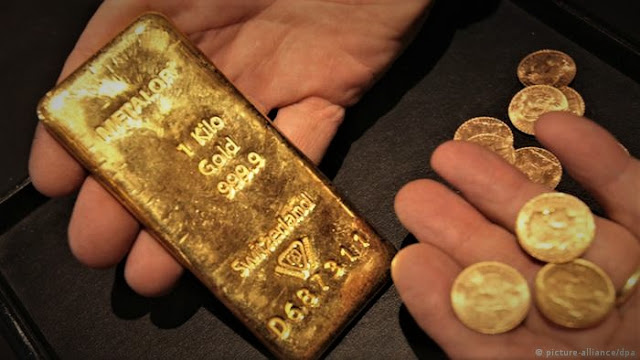For what reason is gold significant
People take a weird mentality to gold. As a compound, it isn't viewed as intriguing, as it scarcely collaborates with different substances. Of the general large number of parts in the irregular table, gold has transformed into the substance that man has money to use as a business cash. Henceforth the inquiry emerges: Why?
For what reason was it not the equivalent for the components osmium, chromium, or helium? Or on the other hand even cyborgium for instance?
I'm not quick to pose this inquiry but rather I in all actuality do request it in one from the most intriguing spots today which is the antique display at the British Museum where I met Andrea Sella, Professor of Chemistry at University College London.
While we were standing together close to a chest defend made of pure gold, Silla took out a copy of an intermittent table of the parts.
"It's not difficult to excuse a portion of the material here," he told me, highlighting the right-hand side of the table.
Gold in nature:
Gold is an uncommon metal. It was found by man in the past as minerals, and in the dirt and the bottoms of streams, and it was feasible to involve it in basic enterprises without turning to refining it. The main part of gold is separated from mines, where it was framed by geographical impacts of the world's covering, and it might regularly be found, in riverbeds or as metals, of which handfuls have been found, the biggest of which was found in Brazil, whose net weight was assessed at 193 kilograms of gold.
It ought to be noticed that gold is not generally packed in huge amounts in the dirt. Previously, the extraction interaction was an incredible overflow, taking note of that the apparatuses utilized were extremely crude. One ton of soil contained 100 grams and more than gold. Today, the dirt is viewed as rich, if how much gold per ton in the dirt doesn't surpass ten grams, and, surprisingly, the creation is thought of as productive on the off chance that the amount doesn't surpass five grams. This rate, as is notable, is large number of times lower than that of iron or even copper, zinc and lead.
Gold in International Economic Relations:
Our insight into gold returns almost 6,000 years, and it has been over a long time since the primary gold coins showed up. The geological disclosures of the fifteenth and sixteenth hundreds of years, tracing all the way back to Vasco de Gama and Christopher Columbus, prompted the development of exchange and the progression of valuable metals to Europe and the change of the archaic economy from an economy of thin trade to an economy in view of the utilization of coins. This was the period of mercantilism.
The essential thought on which the Mercantile convention was based is that valuable metals, particularly gold, are the reason for genuine abundance, and afterward the genuine sign of the state's abundance is the collection of this mineral in it.
The revelation of gold in California and Australia was a significant variable in monetary development, and in the arrangement of worldwide business sectors, and there is no question that the progression of gold to Europe in huge amounts, was the reason for the presentation of the gold base.
With the revelation of gold in the Republic of South Africa toward the finish of the nineteenth century, another stage started throughout the entire existence of the yellow metal, with the Republic of South Africa delivering 66% of the world capital creation, as how much worldwide gold creation in the eighties went between 950-1000 tons every year, the portion of South Africa was Of which it is assessed at 650-700 tons yearly.
The extricated gold didn't have a similar destiny. Until the First World War, some of it was utilized to mint cash, and what might be compared to this sum was utilized as a cover for the cash issue. In the two cases, gold appeared as cash, moving from save to flow, as well as the other way around by printing and purifying the metal. This was the period of the brilliant rule.


Comments
Post a Comment